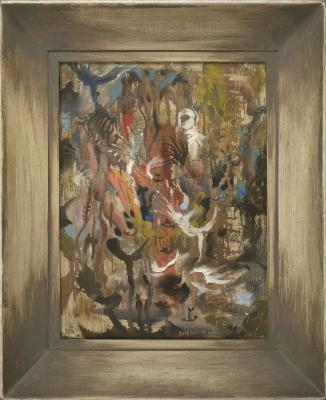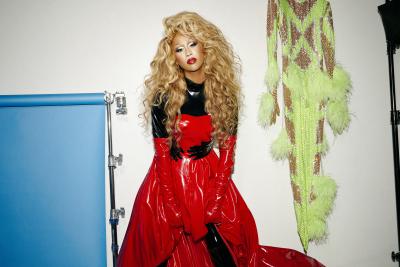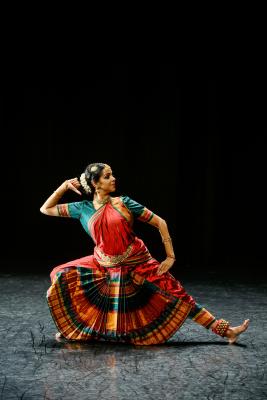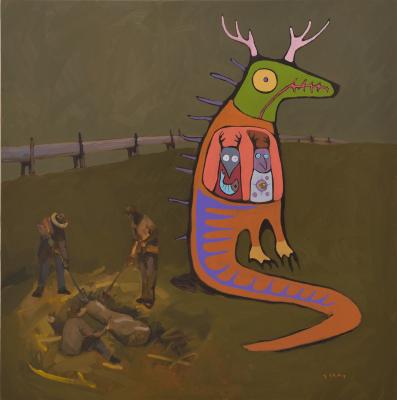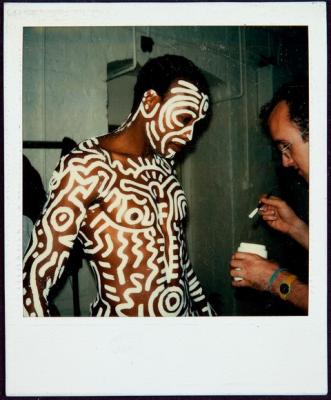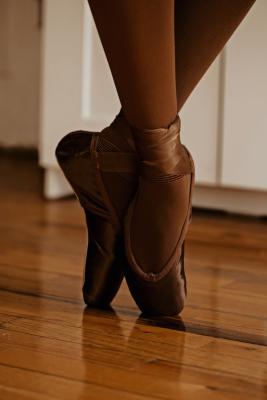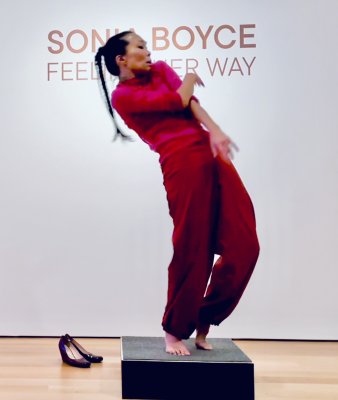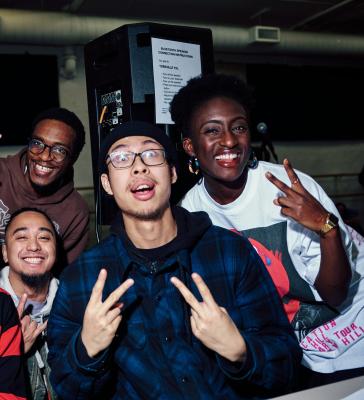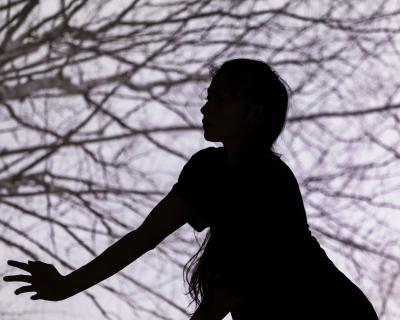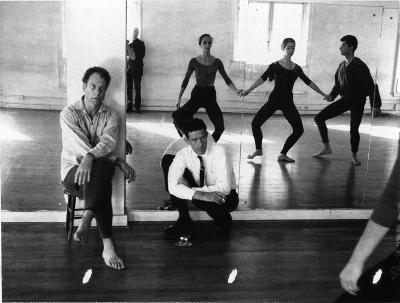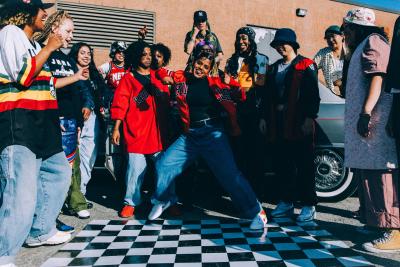Battling It Out With TBD Crew
The dance crew reflects on their dance origins and the importance of hip hop dance battles.
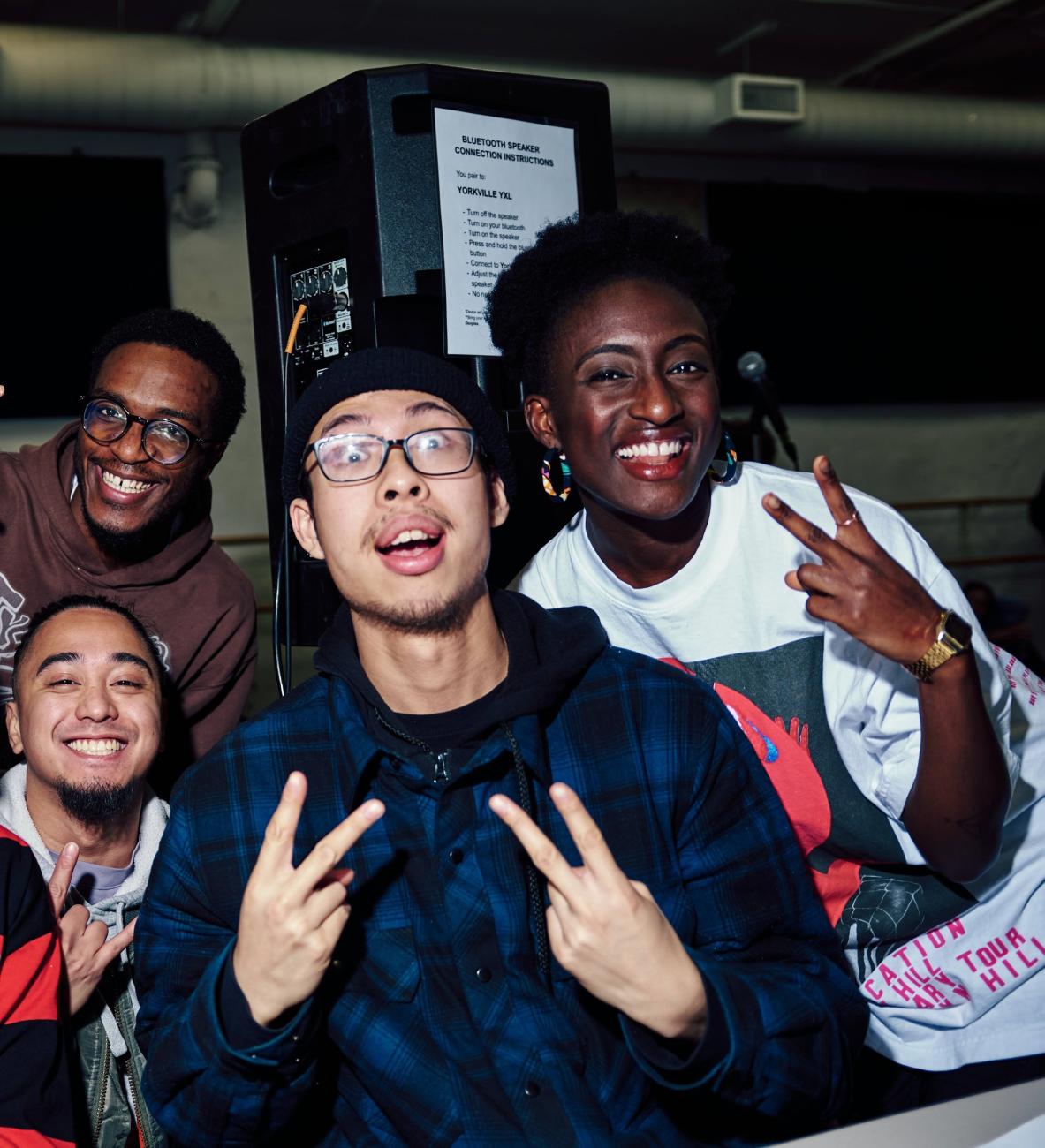
From left to right: Rainer (bottom left), Frank (top left), Minh, Alex. Photo taken by Anyo.
On Friday, February 21 from 6 to 9 pm, TogetherButDifferent Dance Crew (TBD Crew) will be hosting a 2v2 Hip Hop Dance Battle at the AGO, inspired by the exhibition The Culture: Art and Hip Hop in the 21st Century, currently on view at the AGO.
This freestyle hip hop dance battle pays homage to the importance of dance in hip hop culture. Breakdancing, which came before freestyle hip hop dance, is one of the five pillars of hip hop alongside MCing, DJing, graffiti, and knowledge. In this upcoming dance battle, dancers will face off tournament-style in Walker Court while being judged by some of Canada’s top hip hop dancers Keith Tha Godd, Target, and Kayla Renee.
TBD Crew was founded in 2017 by dancers Minh Nguyen (aka Dabba Ranks), Alexandra Tauhid (aka Niyi), Rainer (Rain) Pluckebaum, and Jessica Elezi after they met through UNITY Charity’s drop-in dance programs in Toronto. TBD crew later connected with Gregory Andelson (aka GFreezy) and artist Frank Amisi (aka 21Swish) who also joined the crew.
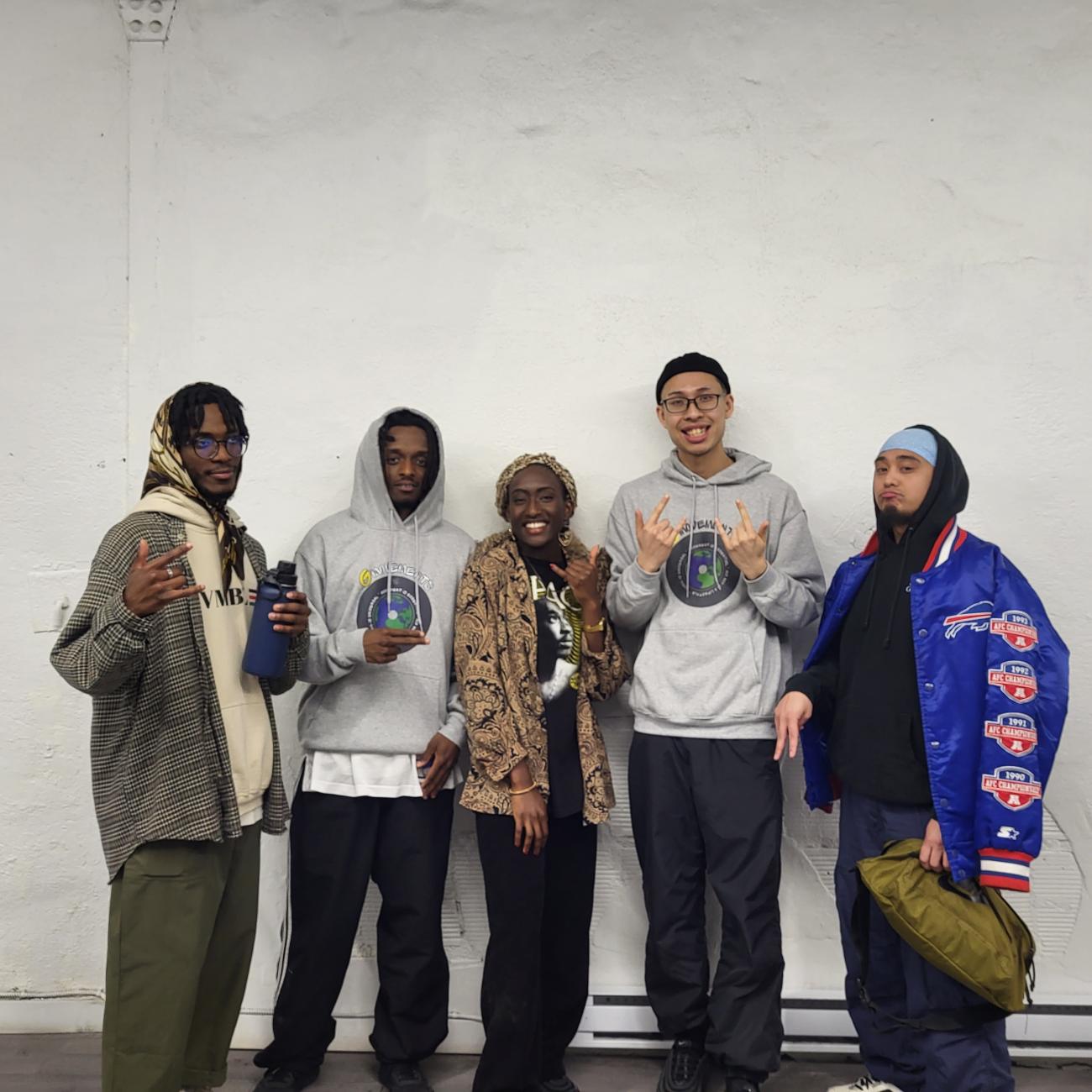
From left to right: Frank, Greg, Alex, Minh, Rainer. Image courtesy of TBD.
Based on a foundation of friendship, and of course, dancing, “Together But Different” encapsulates TBD’s essence and mission. Comprising of five first-generation Canadians, the crew members have Nigerian, Haitian, Cameroonian, Vietnamese, and German-Filipino roots. United by their differences and a shared belief in fostering community, TBD’s mission is to make hip hop dance more accessible while also creating spaces where dancers can grow, express themselves freely, and embrace what makes them unique.
Ahead of their dance battle at the AGO, Foyer interviewed TBD crew members Niyi, Minh, Rain, and Frank to learn more about their personal relationships to hip hop dancing, involvement in TBD, and the importance of dance battling to hip hop culture.
Foyer: Can you share how you first got involved with hip hop dance?
Niyi: I've grown up with dance in my life, which was largely influenced by my Nigerian culture. I would create little choreos with friends for fun or take dance classes at school, but I never “trained" in it because I grew up focusing on competitive sports. I started taking hip hop dance seriously when I started university in 2016. I got injured through sport, wanted to get back into movement in a safe way, and remembered how much I loved to dance. I'd heard about a free hip hop festival called UNITY Fest, and as a young student, I liked anything free! That was when I went to my first hip hop dance battle, and I fell in love with the dance style ever since.
Minh: I fell in love with hip hop freestyle when I participated in a free hip hop program that was organized by UNITY Charity. And funnily enough, that's how the original members met each other. I was a dancer who did this dance form called popping at first, but I didn't feel “free” within my style. Luckily, the transition and commitment to hip hop freestyle made it apparent that I love it so much and I naturally gravitated toward it. Naturally, the love spread to eventually creating a dance crew.
Rain: It all started with listening to the large collection of CDs my parents collected over the years – a lot of Michael Jackson, Phil Collins and the occasional German carnival music. Around my teenage years, I was captivated by breaking and graffiti culture, which I later learned was a part of New York hip hop culture. When I moved to Toronto for college, I got to understand hip hop culture in Toronto and found myself amongst people who shared the same curiosity and wonder.
Frank: Being from the Democratic Republic of Congo (DR Congo), dance has always been a part of my life since it’s something that we do as a form of celebrating, sharing and worshiping. That love for dance, combined with hip hop music, is what got me super into [hip hop] culture as a whole. My passion and curiosity for the culture naturally led me to the people I now call crew mates. Although we are all very different, our shared love for hip hop is what brought us together.
What is the significance of dance battles to hip hop culture and to yourself as a dancer?
Niyi: Within hip hop culture, dance battles began as a way to take up space and mark your territory in an era of socio-political struggle. It was about competition, but also a safer outlet for frustrations in times of strife – basically dance it out instead of fight it out, talk is cheap, show what you can do. I believe that message continues today but in a different way. Dance battles serve as an embodied way to make a statement of who you are and show what you can do as a culmination of your training and learning.
Dance battles have always helped me grow in my physical practice but also on a mental level. Going up against someone/a group of people with the eyes of the audience and the judges on you can really mess with your head. However, that mental challenge of digging deeper into who I am, what the music gives me, and what I want to “say” through dance is the greater goal and is the true enjoyment I get from dance battles because it feeds back into my life as a person. I think every dance battle I’ve entered has been a snapshot of where I’m at in life as a person. It’s so much deeper than just the competition for me.
Minh: Dance battles in hip hop culture are a gateway for letting go of what you need [to let go of] and translating that into a bodily freedom of expression that turns into a conversation piece between two dancers. It can be spiritual and emotional as dancers can let out what’s internally bothering them on the dance floor or challenge themselves in an environment where people share the same values and goals. To preserve [hip hop] culture is to hold dance battles. By maintaining and growing hip hop culture, we want battles to be symbolic of growth, preservation, and identity. This ties into [my experience]. Even though I'm just a guest within the culture, I truly believe in the preservation of it. A culture unites people and has its own traditions and rules, and that’s the same way with hip hop culture. I want to maintain [its roots] while also having it evolve and grow.
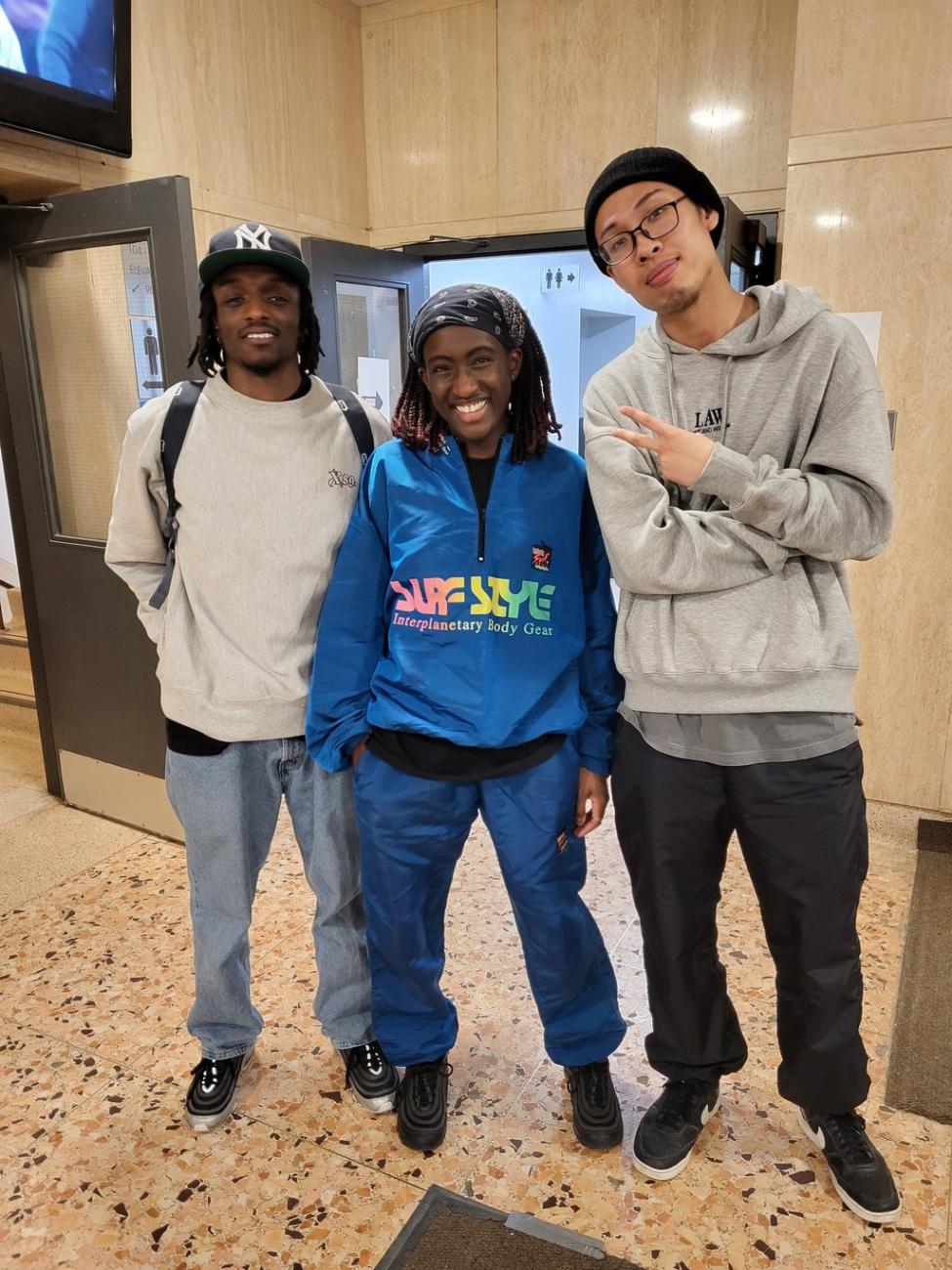
From left to right: Greg, Alex, Minh. Photo courtesy of TBD.
Rain: The battle aspect in breaking or hip hop freestyle encourages growth and builds confidence. When competing, everyone can show how they feel the music and reveal tricks they might have up their sleeves to impress those who are watching [such as] the judges, and beyond that, themselves. I think competing has given me an opportunity to step out of my own comfort zone and feel confident in saying what I have to say on the dance floor. It also served as a mirror to see where I am in my understanding of movement, and it’s not to measure myself against other people, but more so knowing that there is still so much more potential and room to grow. This kind of battle mindset applies to hip hop culture.
Frank: Dance battles are a way of conflict resolution. It’s a way of communicating and getting one’s point across. Personally, I enjoy competition and the growth that comes out of that. I’m also just a fan of great dancing, so I love to watch people show out on the dance floor. The exchange of energy, movement, and knowledge is always a joy to witness.
As a diverse crew with multicultural heritage, in what ways has hip hop dancing become a bridge for you to engage with different communities?
Niyi: From my perspective, our various heritages all value community – whether it be eating together, working together, family gatherings, or social dancing. It’s a part of our upbringing that we all resonate with differently. I think there’s an approachability that our crew brings to many spaces because of this value. When we go into different communities and come across differing backgrounds or levels of dance experience, our starting point is getting to know the other person on a human level and sharing ourselves on that level too. I think that shocks people sometimes! The bridge is built when people realize that our dancing is an extension of our value to connect and that’s what we believe makes hip-hop so enjoyable. In turn, I always hear from those we interact or work with that they enjoy themselves, which I believe sticks with them much longer than learning a dance move might.
Minh: Dance definitely gave me more insight into what my capabilities are as an individual. I didn't realize that over time, it has built my confidence, social awareness, open-mindedness and understanding. My introverted self wouldn't have gotten this far if I’m being honest. That is why I'm grateful to have a crew and community who are diverse and can understand, respect and support each other. I never got that privilege or opportunity to experience any of that, [which is why] using hip hop dance as a bridge to engage with different communities is a huge role for me. A maturity and hunger for learning have continuously been on my agenda when it comes to community involvement – to think hip hop dance can change someone so much over many years. I truly believe this feeling and experience can be passed down to the next person as well!
Rain: It is a super cool thing to get to know someone else’s community or someone from another country and connect through hip hop. It shows that beyond the languages we speak, [dance] is also a universal language. Hip hop is a perfect example of that, especially when it comes to music. I think it’s something the whole world can connect with. In a way, it’s a superconductor that can transfer a piece of information from one country or community to another. Exchanging knowledge of movement and understanding of music through hip hop dancing is a really wicked experience.
Frank: Hip hop has been a bridge that connects various communities for a long time. Oftentimes, we have lived similar struggles and have gone through similar challenges in life without even knowing. Having hip hop as a space where we can seek refuge brings us all together. Because it’s a space of expression, celebration, and freedom, we are all able to be fully accepted despite our differences and baggage. Different communities are welcome because it’s a place of acceptance.
What are your hopes for the 2v2 battle taking place at the AGO on February 21?
Niyi: My first introduction to hip hop freestyle dance was through a dance battle in 2016. I was enveloped by the music and the talent of the dancers, and it was just fun and felt good. At that moment, I said “whatever this is, I want to try it.” Here I am, almost 10 years later, and there is so much good that dance has brought into my life. I hope that even one person who experiences this battle will want to try dancing, explore hip hop music and culture, or simply leave feeling better than they came. That moment in 2016 was a gift for me and I hope this battle will be a gift for someone else too. I also hope this battle serves as a catalyst for hip hop dance to be welcomed into different institutions in the city. When envisioning an art gallery, many won't imagine groups of youth dancing or hip hop music booming, but they should! Hip hop dance is an art form, a teaching tool, a universal language, a mental health resource, and so much more. For the dancers and artists in the hip-hop community, I hope this battle lets them know that they can take up space in all sorts of institutions.
Minh: My hopes for the 2v2 battle taking place at the AGO would be understanding the culture and what freestyle looks like, both generally and on a chemistry level. The cultural portion is understanding that this thing called “hip hop freestyle” stems from hip hop which has a lot of historical context to how things came about. Regarding the dance portion, the creators [of this dance style] have taught the fundamentals, the vocabulary, and how to dance with these tools. But there's more to it than throwing the “coolest moves” on the dance floor. Hence, why I hope for an understanding from the crowd that there's more to dance than how they currently perceive it. In freestyle, everything comes straight from feeling, listening, prior fundamental knowledge and body movement. This is not choreography, and we hope the crowd understands that this is not premeditated. Lastly, the chemistry for the 2v2 will be important as the dancers [on the same crew] need to show their opponents and crowd how they are intertwined with their movement based on feeling, musicality, and matching each other's vibe and energy. The goal is not to make it look like a 1v1 in a 2v2 battle. I hope the end result will benefit the crowd’s understanding, and they feel inspired in any type of way or form.
Rain: Being able to have a 2v2 battle at the AGO is definitely a big milestone in Toronto hip hop dance culture. I hope that everyone can appreciate the fact that hip hop has come so far, and I hope this can also fuel the dancers to feel comfortable tapping into their battle mode. But for me, what it really boils down to is that I hope everyone just has fun and a good time.
Join TBD Crew in bringing hip hop dance battling to the AGO on Friday, February 21 from 6 to 9 pm in Walker Court. This event is free with general admission, and young Ontarians under the age of 25 can enjoy the AGO with a free Annual Pass.
